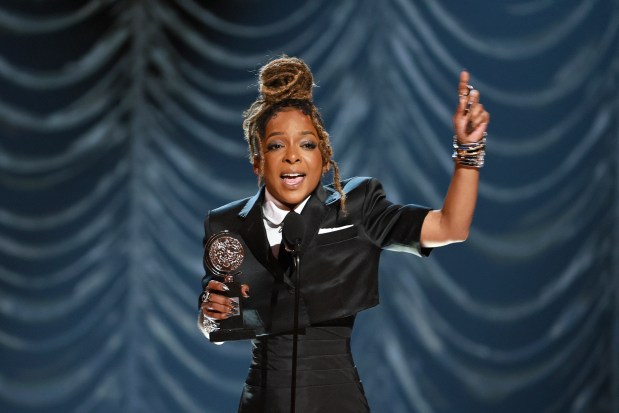A scion of one of the most notable families in Chicago’s busy business history, Peter Bensinger was born into a world that could have provided him shelter from life’s storms.
But he was drawn to less cozy places, determined to help make the world a kinder, more equitable place. He did so, in part, when he was head of the Drug Enforcement Administration and for decades afterward as an active and articulate voice on behalf of causes including child welfare, drug use and prison reform.
Bensinger, 88, died after a long illness on Feb. 11, surrounded by family in Palm Desert, California, where he and his wife, Judy, had moved after more than half a century in Lake Forest.
He was born on March 24, 1936, the youngest of Benjamin Edward Jr. “Ted” and Linda Bensinger’s three boys. They were a dynamic couple, he the heir to the Brunswick Co. and its president during some wildly active mid-20th-century decades; she an ebullient personality, energetic on the social and philanthropic scenes, a “civic treasure,” as described by the Tribune,.
Brunswick is among the city’s oldest and most prominent companies, founded in Cincinnati in 1845 and soon making Chicago its headquarters. It dominated the billiards and bowling industries, made recordings and phonographs, automobile tires and a vast array of sporting equipment, as well as motorboats and marine outboard engines.
Growing up in the Gold Coast neighborhood, Peter attended the private Latin School before heading off to Phillips Exeter Academy in New Hampshire. He excelled in athletics in high school and at Yale University.
While at Yale, he fell in love with and married Linda Weis, a native of the Chicago suburbs. After graduation and the birth of a son, Peter Jr., in 1958, they returned to Chicago and he began working for Brunswick.
“That was sort of what was expected, but I did not feel challenged working in sales and I was seeing a new world that was disturbing,” he would recall years later. “I was seeing crime close up, all sorts of shootings in the city and that was worrisome to me. So many of these troubles seemed the result of drug-related crimes.”
And so was he drawn away from the world of commerce and into politics. There he came to the attention of, and impressed, Richard Ogilvie, who was elected Illinois governor in 1968 and who named Bensinger chairman of the Illinois Youth Commission and then director of the state’s Department of Corrections, with direct responsibility for all penitentiaries and parole supervision in Illinois.
Bensinger immediately distinguished himself as a reformer, implementing innovative approaches to rehabilitation and prisoners’ rights. He made headlines in October 1971, when, after inmates at the Pontiac Correctional Center downstate took guards as hostages, he personally eased tensions and quelled further trouble.
The situation at Pontiac, coming only weeks after the more famous and bloody riots at New York’s Attica prison, made national news and led to Bensinger’s being elected president of the Association of Prison Administrators.
Adopting the campaign slogan “tough and totally independent,” Bensinger ran for sheriff of Cook County in 1974. Though he lost that election it brought him additional attention, which led to his appointment by President Gerald Ford in 1976 as the second head of the DEA. He and his growing family had to move east.
Divorced from his first wife, in 1969 he married Dr. Judith Anne Schneebeck, a graduate of Northwestern University’s medical school. They would have three daughters together.
Based with his young family in Washington, he was frequently on the road to world hot spots. He would do this so energetically that, when he stepped down in 1981, the Congressional Record noted that “Bensinger’s loss to the Government is a loss to all America. He has done a brilliant, patriotic, energetic job.”
The family moved back to Chicago, where Judy began her successful adolescent medicine practice and he founded Bensinger, DuPont & Associates, with Robert DuPont, the first director of the U.S. National Institute on Drug Abuse. The company was among the nation’s first to offer employee assistance programs for those suffering mental health and/or addiction problems, dealing with companies of more than 500 employers.
The firm started with Commonwealth Edison as a client and was a great success, ever expanding its roster and adding help lines
and programs for gambling addiction counseling.
Bensinger received multiple honorary law degrees and authored articles published in Newsweek, U.S. News and World Report, The New York Times, The Washington Post, the Chicago Tribune, USA Today and elsewhere. He appeared on network news programs, including “Good Morning America,” “Meet the Press” and “The Oprah Winfrey Show.” He was presented with the Order of Lincoln, the state of Illinois’ highest honor.
“It is understandable that my dad would be remembered for his impressive list of accomplishments, but the true highlight of his life was his family,” said his daughter Brette, a Chicago-based lawyer.
As a reporter for and later editor-in-chief/publisher of the Chicago Tribune, Bruce Dold closely observed Bensinger through the decades.
“Peter was a citizen of the city and the state in every classic sense of the word,” he said. “He valued honest, transparent government and richly deserved the honors that came his way.”
Bensinger’s later years were peppered with requests for comment on issues of the day, and he was always an informed and willing source for opinions. He lived through the ups and downs of his lifelong passion for the Chicago Cubs, making 2016 a year to cherish. He sold his firm that year too,
“We talked almost every day, no matter where in the world we might be,” said Bensinger’s older brother, Roger. “We have always been there for one another.”
His son, Peter Jr., was fond of recounting that his father would often say to him, “Use your talents on behalf of a cause greater than yourself.”
Survivors also include two other daughters, Jennifer B. Parkins and Elizabeth; a brother, Roger; and five grandchildren.
A a memorial service is being planned for early this summer.




